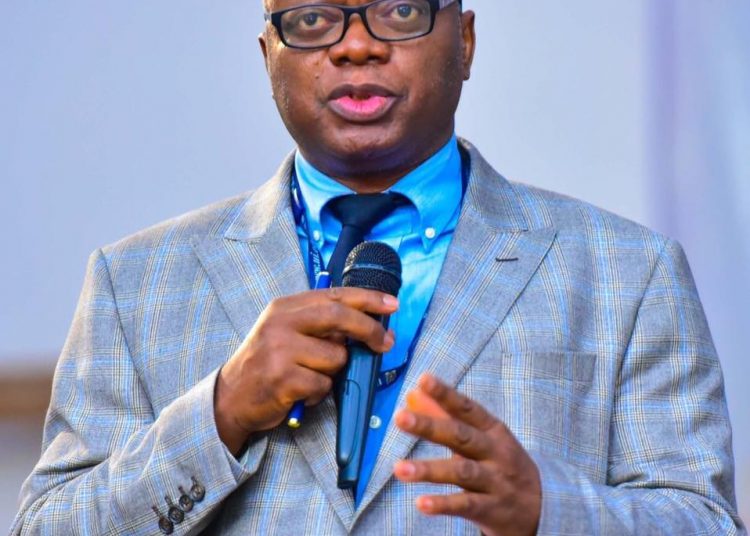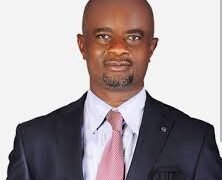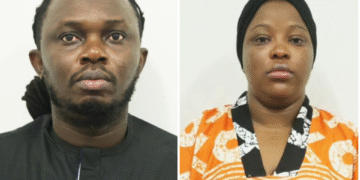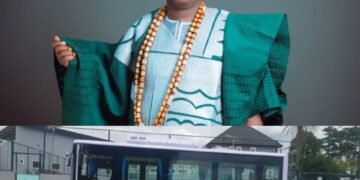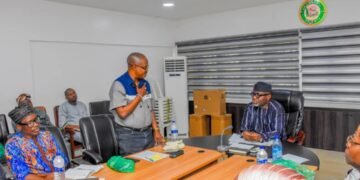VOLUME V: MY STEWARDSHIP AS 12TH VICE CHANCELLOR, UNIVERSITY OF IBADAN, 2015-2020
THE LIBRARY AND THE UNIVERSITY GOVERNANCE
This is the FIFTH EDITION of the account of stewardship of Professor Idowu Olayinka who recently completed his five-year term as the 12th Vice Chancellor of the University Nigeria on the 1st of December, 2020. In this volume is documented the achievements of his administration in the areas of THE LIBRARY STSTEM AND UINVERSITY GOVERNANCE. Publishing these feats, as said in the previous editions means inviting everyone to not only note the achievements but to also attempt to confirm the veracity of the claims of Idowu Olayinka, learn from his actions and place commendations when impressed (and criticisms when not). We wish you a good time with Olayinka’s exploits below:
THE UNIVERSITY OF IBADAN LIBRARY SYSTEM
To enhance, its capacity to provide information and other library services to our students and other users:
- The Kenneth Dike Library (KDL) aqcuired 850 books and journals in 2017; 3,169 in 2018 and 2,443 between January and May 2019.
- The KDL subcribes to over 15 data bases including the following; Emerald Insight, Law Pavilion, Science Direct, HINARI, E-Brary, Proquest, OARE. Other free access databases subscribed to include: African Journals Online, Bookboon, Biomed Central and Pub Through these databases, Library users have access to full text journal articles and e-books within or outside the physical confines of the KDL.
- The University of Ibadan Library Management Software (UI-ILS) is deployed on a high-end Gen-8 server that makes the Library easily accessible locally and globally.
- The contents of the Institutional Repository is manged using the D-Space software and its contents have grown in between 2018 and 2019 to over 4110 entires of digitized full text articles, books, conference proceedings, thesis, University Lectures and Inaugural Lectures.
- An additional 140 computer systems were acquired in 2016 and made accessible to users between 8.00am and 4.00 pm daily.
- To secure library materials, Radio Frequency Identification (RFID) security doors were installed. Books were also tagged with RFID chips to prevent unauthorized removal of texts from the Library. This has significantly reduce the incidence of book theft in the Library.
- With the re-introduction of the 24/7 library services since mid 2017, additional surveillance cameras have been installed round the Library premises.
- The main 24/7 reading room was commissioned on 5 July 2018. It sits 285 users while the extension which can seat 270 users was also opened a few months later.
- A new unit was created in 2016. Called the Nigerian Unit, it stacks over 10,000 volumes of books written by Nigerian authors on the Nigerian situation.
GOVERNANCE ISSUES
- We devolved and decentralized powers to Faculties to conclude all Part I Promotion cases up to the Senior Lectureship Grade at that level. Approved cases are then forwarded to the University Appointments and Promotions Committee for Academic Staff for Noting, with effect from the 2017 Promotion exercise. This singular measure has greatly complemented other pro-active measures we have deliberately taken since 2015 to reduce the volume of paper work considered by the Committee with a salutary effect in a significant reduction in the processing of promotion matters.
- We established a new office of Deputy Vice-Chancellor (Research, Innovation and Strategic Partnerships)- DVC (RISP). Apart from serving on 10 Statutory Boarda and Committees, and Chairing 15 others on behalf of the Vice-Chancellor, other major remit of the new office as approved by Senate include the following:
- Facilitating and maintaining local and international linkage and exchange programmes.
- Evolving innovative need-driven university-wide academic and research projects.
- Aggressive fund generation by attracting aids, grants, endowments, etc, and through the provision of the relevant services and products to the general public.
- Networking with relevant governmental, non-governmental and private sector organisations.
- Cooperating with the Alumni Association to enhance the overall development of the university.
- Performing other duties and assignments as may be delegated by the Vice-Chancellor.
- The pioneer DVC (RISP) took office in March 2017. It is gratifying to note that two months later the National Universities Commission organized a Retreat for all Pro-Chancellors and Principal Officers of Federal Universities and one of the major recommendations was that each Federal University be encouraged to establish the position of Deputy Vice-Chancellor (Research). It is rather exciting that we had taken the bull by the horn earlier.
- We undertook a transformation of the Postgraduate School into a Postgraduate College headed by a Provost and two Deputy Provosts. Postgraduate teaching and research has been an integral part of the University of Ibadan since the establishment of the institution, with the first Ph.D degree of the University earned by Prof Sanya Dojo Onabamiro in 1951, under the supervision of the first Principal of University College Ibadan, Dr Kenneth Mellanby. Prof Onabamiro became the first person to earn a PhD degree in any British Colonial University. The formal management of postgraduate matters in the University had been transformed over the years as follows: Higher Degrees Committee -1963; Board of Postgraduate Studies – 1970; School of Postgraduate Studies -1976; Postgraduate School -1978.
- The idea of transforming the Postgraduate School, University of Ibadan, into a Postgraduate College was first conceived in the early 1990s. Thereafter, the Committee of Deans and Provosts of the Postgraduate Schools in Nigerian Universities (CDPGS) had requested for the transformation of all Postgraduate Schools to Colleges. The National Universities Commission (NUC) had also advised that Postgraduate Schools should move towards becoming Colleges.
The Board of the Postgraduate School by its responsibilities handles functions that cut across Faculties, Departments, Institutes and Centres. Thus, it deserves a level of elevation and a measure of autonomy in administrative, academic and financial matters. Therefore, transforming into a College would be most beneficial.
On the recommendation of the Board of the Postgraduate School, both the Senate and Council approved the transformation of the former Postgraduate School into a Postgraduate College headed by a Provost in 2018 in order to promote efficiency and effectriveness in handling postgraduate matters in the University of Ibadan. The then incumbent Dean of the Postgraduate School, Professor Bamiji Babalola, FAS, was inaugurated as the pioneer Provost of the Postgraduate College.
- Establishment of the Directorate of Affiliated Institutions.
A Directorate of Affiliated Institutions was established in 2017. The following considerations constituted the justification for the establishment of this Directorate:
- The responsibilities associated with the day-to-day running of the affairs of affiliated institutions are diverse, extremely demanding and quite difficult to combine with the responsibilities of a Dean or Director of Institute. It involves constant interaction with all the affiliated institutions and colleagues across relevant faculties and departments.
- It is often required to embark upon visitation trips to affiliated colleges.
- The University had, as at 2017, sixteen active affiliate institutions and all the affiliated institutions running multiple programmes had a Director or Coordinator for the affiliated degree programmes.
- The number of affiliated institutions was increasing.
- A Directorate would enhance efficiency in the administration of affiliated institutions matters as the Director would be more devoted to the affairs relating to affiliation.
- The proposed Directorate would facilitate better administration of affiliated institutions as it gives the Vice Chancellor the opportunity to appoint individuals with an understanding of issues relating to affiliation as Director.
- Better administration should transform into higher revenue generation for the University.
The Directorate would not place any financial burden on the University as it will not only be self-sustaining but also profit making for the University.
- The Directorate of Affiliated Institutions took off effective 1 August 2017, with Professor M. K. Akinsola, a Professor of Mathematics Education and Former Dean Faculty of Education as the Pioneer Director.
- The Directorate of Logistics and Project Management was merged with the Physical Planning Unit to form a Directorate of Physical Planning and Project Management in March 2019. This was done to ensure efficient, cost-effective conception, design and delivery of all construction projects in the University thus producing world-class facilities for teaching, learning and research; to maintain an accurate database on all construction projects for effective accountability and decision making; to facilitate easy access to funds for physical development by making relevant information and logistics available to relevant government agencies and other benefactors; and to ensure proper planning and execution of all preliminary works on new projects, including siting, surveying of sites and supervision of the University Master Plan implementation and updating.
- Composition of a Board in the Management Structure of the Centre for Drug Discovery, Development and Production in the Faculty of Pharmacy.
- With the continued increase in both the Academic and Non-Academic positions in our University, it became expedient to develop a Responsibility Manual that documents, in a single publication, the roles and responsibilities of each officer in the University starting from the Vice-Chancellor to the most junior officer. The document, prepared by a committee inaugurated in 2017, under the chairmanship of the then Deputy Vice-Chancellor (Academic), was approved at the Senate Meeting of 22 May 2019.
- Development of a Code of Ethics in Teaching and Service Delivery. This ethical guideline provides an adequate foundation for self-regulation and self-accountability and promotes ethical best practice, mindfulness, self-reflection and informed decision-making in service delivery (teaching, research, innovation, community service and administration) by all cadres of staff of the University of Ibadan. This code of ethics is based on the core values of the University of Ibadan as set out in the vision and mission statement – integrity, respect and responsibility.
- The Code of Conduct, which formalises what is already common practice for teaching, research, innovation, business and service delivery in the university, seeks to:
- Promote the transmission of positive cultural values and functional learning behaviour through adherence to the values of work ethics that will enhance effective service delivery (teaching, research, innovation, community service and administration) by all cadres of staff and allied service providers.
- Provide a set of principles to guide members of staff of the university in their everyday conduct and assist them to solve ethical dilemmas in the course of service delivery.
- Affirm the public accountability of service delivery across all cadres of staff and allied service providers.
- Promote public confidence in the service delivery of all cadres of staff and allied service providers.
- Development of a University of Ibadan Policy on The Status of Principal Officers at the Completion of Tenure (Registrar, Bursar and Librarian). Both Sections 6(4) and 6(5) of the Universities (Miscellaneous Provisions) Act No.11 of 1993 (as amended) clearly indicate that these three principal officers are expected to remain in the services of the University if they are not due for retirement at the completion of their tenure. However, there was no explicit statement at the University of Ibadan as to where to place such principal officers on the completion of their tenures and this had generated a lot of controversy and stress in the system. To address this lacuna, we developed a policy to guide or specify the positions such principal officers may be assigned at the completion of their tenures. The recommendation that such officers be placed on the Directorship grade in their respective departments was presented to the Council in March 2019 and it was approved.
- Revision of the Staff Information Handbook
- Revision of the Condition of Service
- The Academic Division of the Registry was split into two units in 2018 with each of the units headed by a Deputy Registrar as follows:
- Deputy Registrar (Senate, Admissions and Affiliated Institutions)
- Deputy Registrar Academic (Examinations, Records, and Data Processing Unit)
- An additional position of Deputy Registrar was created in the new Postgraduate College in order to reposition the College. The Deputy Registrar positions are designated as follows:
- Deputy Registrar (Admission and General Administration)
- Deputy Registrar (Examinations and Records).
- With the new initiatives in 2018, the number of Deputy Registrar in the University increased to 17. The Registry has never had it so good.
- Workshop for new Deans and Heads of Departments, 2nd and 3rd August 2016. Keynote Speaker: Professor Peter Okebukola, Lagos State University and former Executive Secretary, National Universities Commission,
- Workshop for new Deans and Heads of Departments, 1st and 2nd August 2017. Keynote Speaker, Dr Paul Effah, President of the Radford University College at East Legon, Accra, Ghana and former Executive Secretary of the National Council for Tertiary Education (Ghana).
- Monitoring and Evaluation Workshop on 1st and 2nd August 2018 with the Theme: Tracking the 2015-2020 Strategic Plan: Engaging Global Challenges of Innovation, Competitiveness and Excellence for a Post-70 Year University of Ibadan.Keynote Speaker: Professor Ademola Ariyo, Department of Economics, University of Ibadan.
- One Day Retreat for Deans, Directors and Heads of Departments on 9th August 2019, with the Theme: University Administration and Institutional Challenges in Contemporary Nigeria. Keynote Speaker: Professor Benjamin Ozumba, Immediate Past Vice-Chancellor, University of Nigeria, Nsukka.
- Induction Programme for new Provost, Deans, Directors and Heads of Departments on 20th August 2020. This was a Virtual Meeting via Zoom on account of the COVID-19 pandemic. The Keynote was delivered by Professor Michael faborode, Professor of Agricultural and Environmental Engineering, Former Vice-Chancellor Obafemi Awolowo University Ile-Ife and Former Secretary-General, Association of Vice-Chancellors of Nigerian Universities/Committee of Pro-Chancellors (CPC) on the topic: Perspectives on University Administration.
- We redefined and clarified the eligibility for membership of Congregation after consideration of the expansion of Section 6(i) (c) of the Second Schedule of the University of Ibadan Act. In particular, it was approved that those senior members of non-academic staff who have Master degree (though they may possess HND as the first qualification) are eligible to become members of the University Congregation.
- In a bid to douse the recurring tension between academic and non-academic staff often occasioned by the struggle to have the two members to be elected as Congregation Representatives in Council from either side of the divide, we proposed an amendment of Congregation Representative in Council by allotting one congregation representative in Council to the academic staff and one seat to the non-academic staff. This was approved at the meeting of Congregation held on 22 June 2018.
- Review of the University of Ibadan Gender Policy: The original policy was approved by Senate in August of 2012. To operationalize the gender equality manifesto of the Vice-Chancellor, a committee was set up to review and revise the gender policy to make it effective. The revised Policy document has since been approved by Senate.
- We have been strategically implementing a Gender Equality Manifesto by actively encouraging and promoting suitably qualified women to top positions of responsibility. For the past two years and nine months, there are three female Principal Officers, out of a total of seven, this representing 42.7%. For the first time ever in the 40 years history of the College of Medicine, a female Professor emerged as the Provost, in person of Professor Olayinka O. Omigbodun, who is also Nigeria’s first female Professor of Psychiatry. Four of our 17 Deans of Faculties are female, namely Professor Catherine Chovwen (The Social Sciences), Professor Oluwatoyin O. Odeku (Pharmacy), Professor Simisola O. Akintola (Law), and Professor Juliana Taiwo (Dentistry).
- Review of the University Research Policy to foster the synchronization of research management at the University of Ibadan and the College of Medicine. The revised policy has been approved by Senate. Furthermore, Senate constituted a committee charged with synchronizing and consolidating research management activities at the University of Ibadan.
- Review of Guidelines for The Appointment of Emeriti Professor. The revised report has been approved by Senate and it was deployed in the 2018 appointment of Emeriti Professors.
- Commissioning of the Policy guiding professional, ethical and moral conducts at the University of Ibadan. The report has since been approved by Senate.
- Gift Solicitation and Acceptance Policy. The policy has been approved by Senate.
- Commissioning of the University of Ibadan Institutional Repository (UIIR) and Open Educational Resources (OER) Policy: Institutional Repository (IR) and Open Educational Resources (OER) are core mechanisms meant to support Teaching, Learning and Research activities in pursuance of the university’s internationalization, vision and mission.


